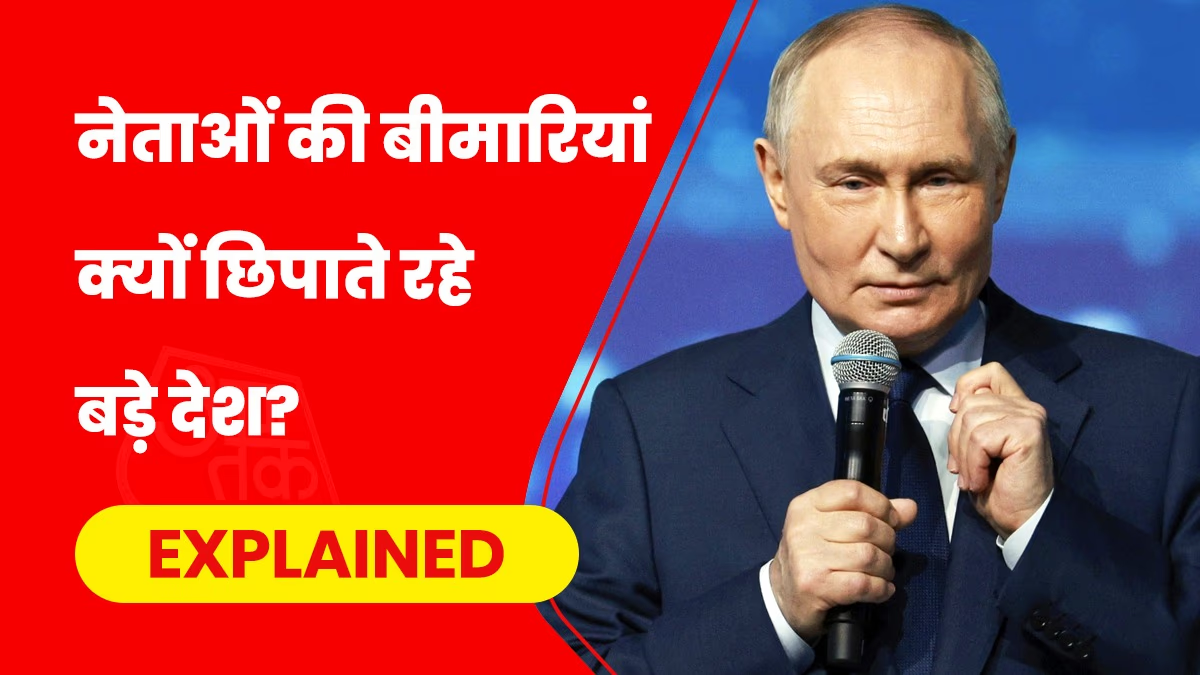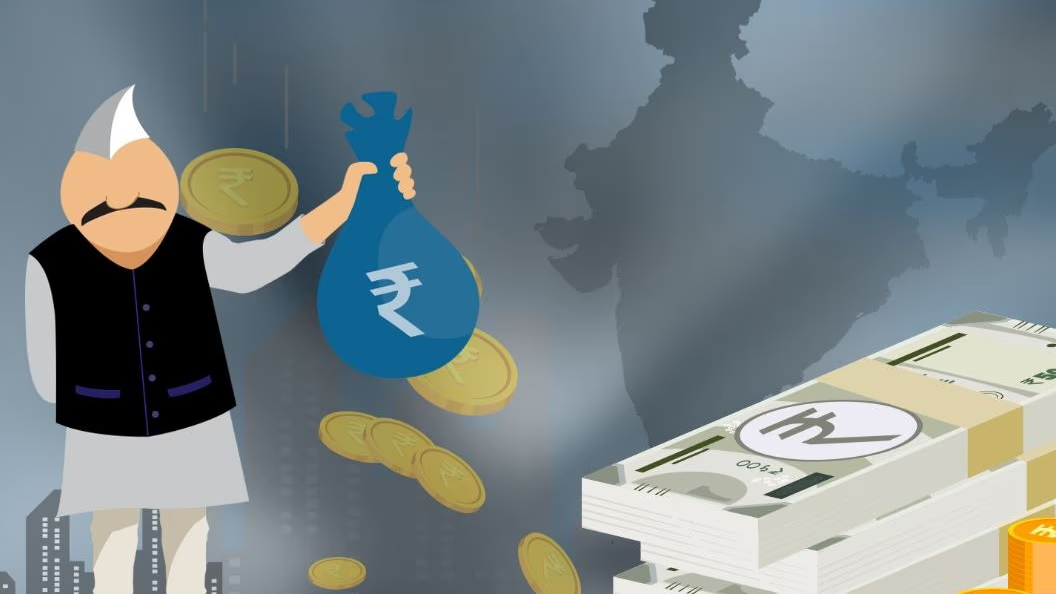Speculations about Russian President Vladimir Putin's serious health issues often surface. Amidst the ongoing conflict with Ukraine, there were even rumors that Putin had passed away, and it was merely a body double appearing in public or before the media. However, these claims were later dismissed as rumors. Recently, Ukrainian leader Zelensky alleged that Putin is gravely ill and would soon meet his end. Such conspiracy theories circulate not only in Russia but also in places like the USA and North Korea.
On Tuesday, Zelensky met with French President Emmanuel Macron. Commenting on the reports of Putin's deteriorating health, Zelensky expressed that Putin's demise is near and would potentially bring an end to the war. Setting aside Zelensky's statements, it's true that rumors about Putin often arise even within his nation.
At approximately 72 years old, Putin has been the center of various rumors over the years. Speculations have included slight trembling in his hands and a change in his walking style, attributed to Parkinson's disease. Some reports claimed he was undergoing therapy for cancer treatment. Gleb Karakoulov, a former KGB officer who has left Russia, suggested that Putin uses body doubles or lookalikes during public appearances to prevent any suspicion of illness.
The Kremlin has consistently labeled these reports as rumors and has not officially acknowledged any grave illness of Putin.
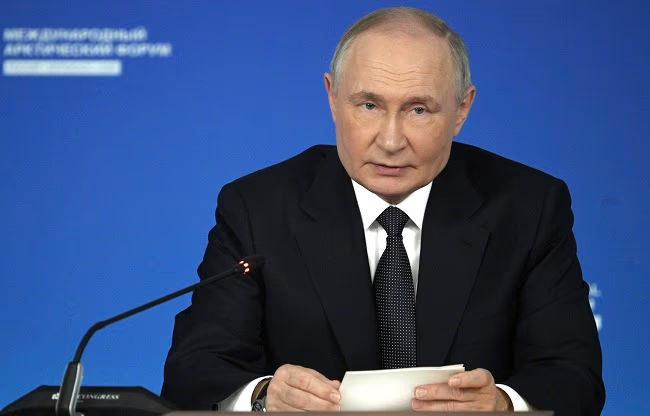
Source: aajtak
Nonetheless, speculations persist, with some nations believing that it isn't Putin making public appearances, but rather his body double. Lieutenant General Kyrylo Budanov, the head of Ukrainian Intelligence, claimed that the real Putin has not been seen since June 2022. A Japanese TV report, utilizing artificial intelligence, alleged that not just one but two duplicates of Putin were operating.
Regarding these claims, Ukraine's intelligence department offered a different perspective. Intelligence argued that the Kremlin intentionally spreads such news to gauge the public's reaction and unrest. Allegedly, this helps the Russian President to comprehend better how to proceed with governance and whom to be cautious of.
Another powerful Russian leader, Joseph Stalin, also had a sudden death, with his condition concealed from the public. In the 1950s, when Stalin suffered a stroke, Soviet officials did not immediately report it. Instead, they pondered for days on how to inform the Russian populace and the world. During this period, old videos and photographs of Stalin were used to maintain the illusion of his good health.
It's worth recalling that this happened when World War II had just ended, and the US and Russia were adversaries. Had Stalin's true condition been revealed quickly, it could have caused instability within the Soviet Union. Hence, details were carefully managed, and with the announcement of Stalin's death, a new leader was simultaneously declared.
America's President Franklin D. Roosevelt, who had polio and used a wheelchair, managed to keep this information from the public for a long time. The media was given strict instructions never to show the President in a wheelchair. Even during public appearances, camera angles were chosen to make him appear healthy.
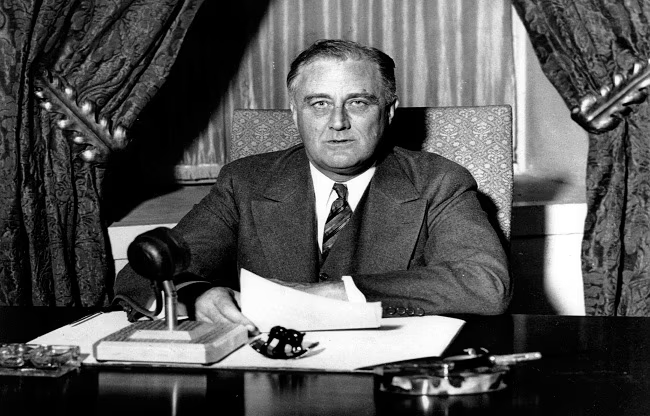
Source: aajtak
Once in office, Roosevelt continued to grapple with various illnesses, unbeknownst to the public. Even when Roosevelt suffered his first heart attack and the media inquired, it was said he was dealing with digestive issues. During World War II, Roosevelt faced severe heart disease, yet his health condition remained undisclosed. At the time, the US had become a global power with Roosevelt as its face. Revealing any weakness could have diminished the nation's strength.
In April 1945, he succumbed to a stroke. This news was shocking to the public, who believed their President was in perfect health.
There have been several instances when leaders concealed life-threatening illnesses to remain in power.
Grover Cleveland, who served two terms as President of the United States, went to great lengths to hide his illness. During the third stage of oral cancer, he underwent surgery on a yacht, claiming he was on vacation. Despite the risk of the doctors' hands trembling amid the ocean's rolling waves, the surgery was deemed necessary. Though Cleveland returned healthy, he soon passed away. It is believed the surgery at sea failed to eliminate the cancer entirely. Information about this was disclosed to the public much later.
American historian Matthew Algeo authored a book about Presidents hiding illnesses. 'The President Is a Sick Man' covers physical and also mental illnesses, reflecting their impact on the nation.
Considering these issues, Congress amended the Constitution to allow the Vice President to assume office if a President suffers a serious illness affecting decision-making capabilities or in the event of death during their term.
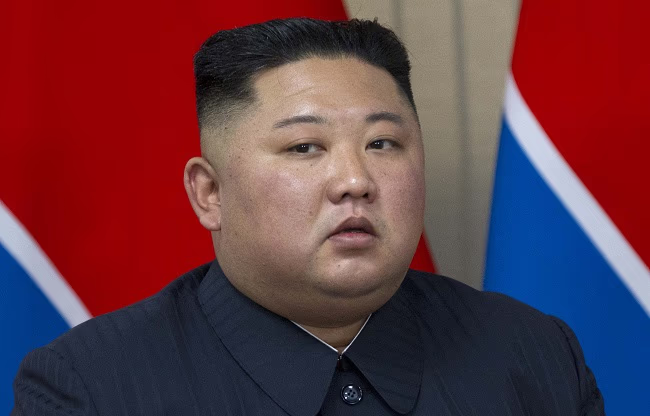
Source: aajtak
Speculations have similarly surrounded North Korean dictator Kim Jong-un. In 2020, he was missing from public appearances for an extended period, sparking rumors about his possible death or severe health issues. He later reappeared looking considerably fitter. Kim's weight fluctuates, fueling suspicions of body doubles. Body doubles are not new in North Korea, as it is believed Kim's father also had similar arrangements to protect against threats.
Whether it's Putin, Kim Jong-un, or Joe Biden, the notion of body doubles frequently accompanies speculations about global leaders' health. Many leaders dispatch others to danger-prone or public spaces in their stead. These substitutes share the politician's stature and often undergo cosmetic surgery to resemble them closely. Body doubles typically excel in acting, enabling them to mimic speech and mannerisms. If the real leader bears facial or bodily scars, these are replicated through surgery on the stand-in. Known as political decoys or stand-ins, they are brought forth only on particular occasions to briefly replace the genuine leader. They do not deliver speeches or major announcements, but instead attend charity programs where public declarations or tough questions are unnecessary.
